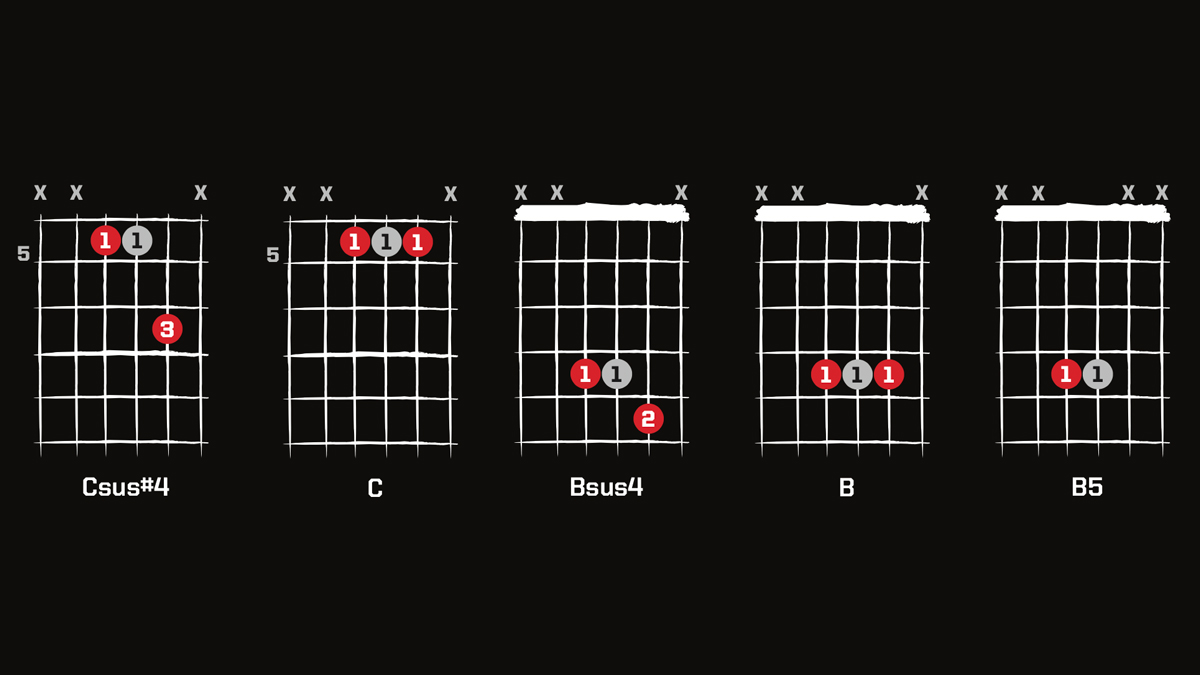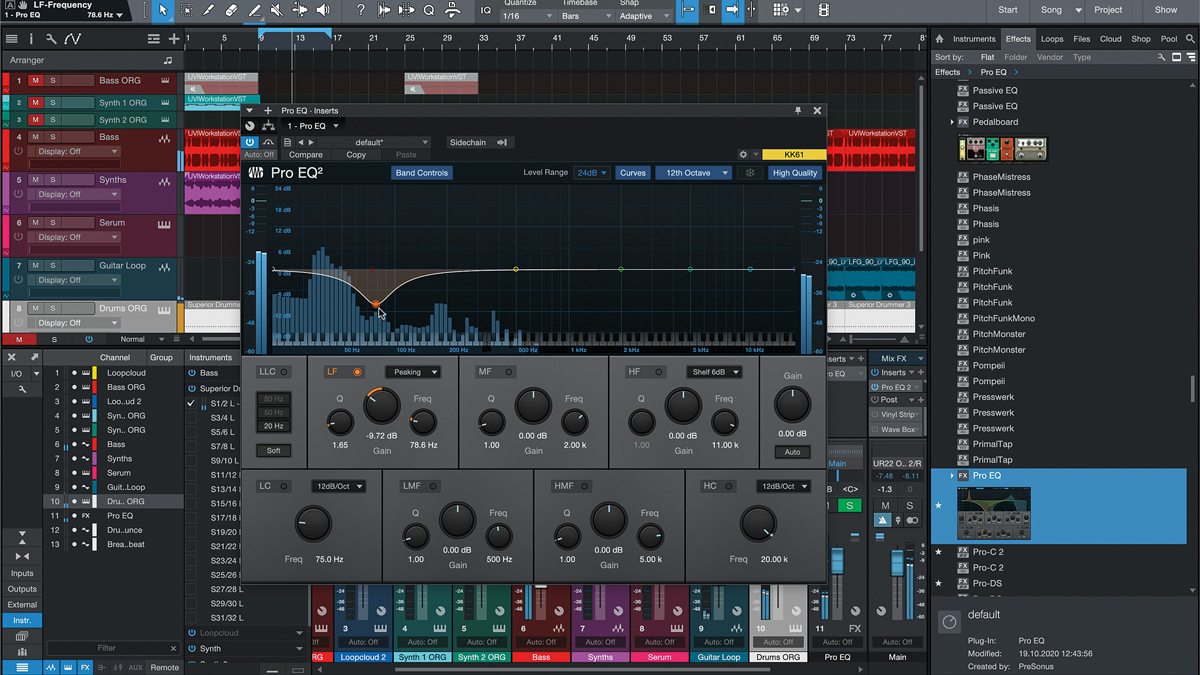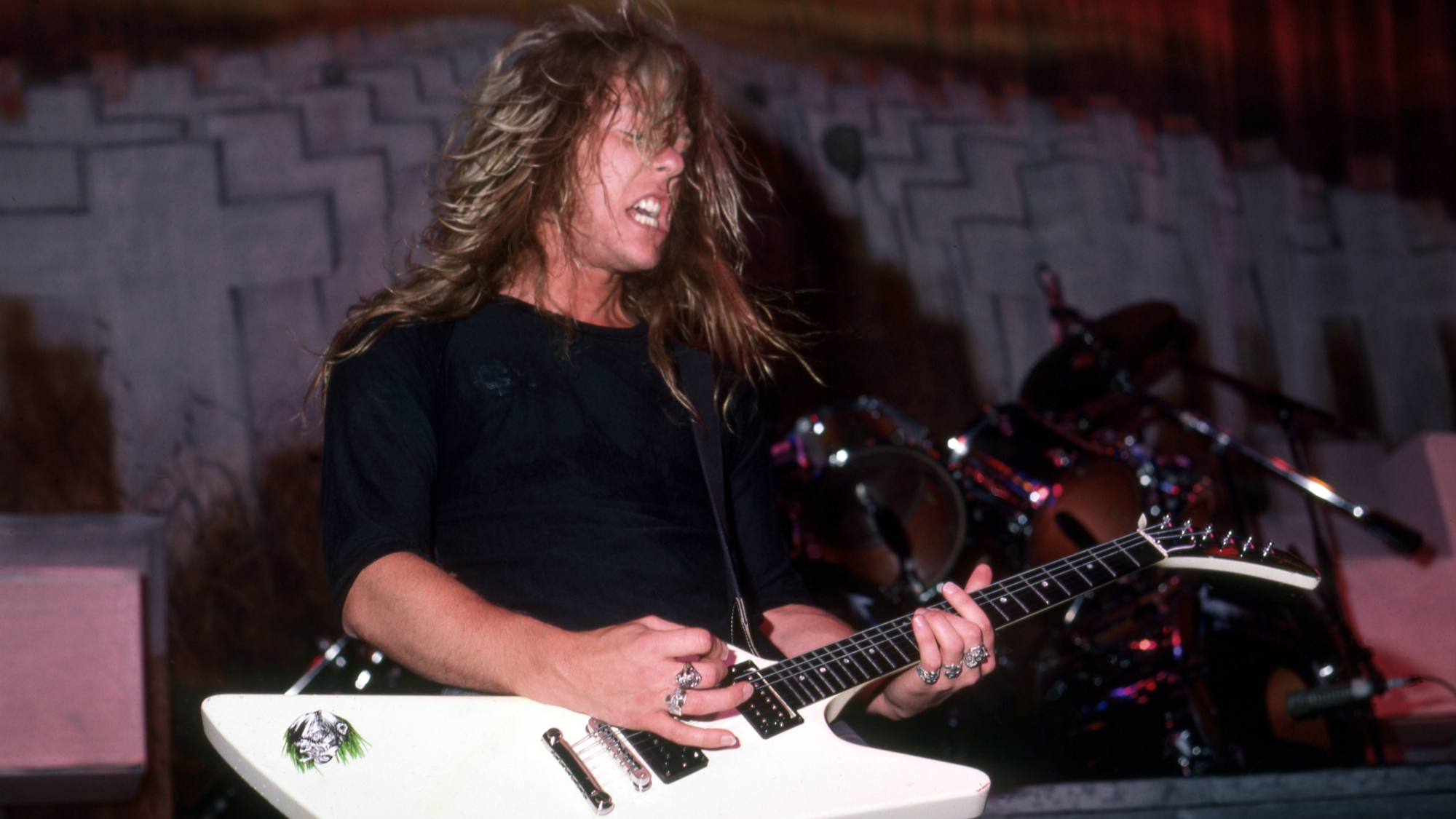7 easy tips that will help you write your next song
Get inspired with these simple ways to supercharge your songwriting

Songwriting is one of the most satisfying aspects of guitar playing, but it's also one of the most frustrating. Every guitarist has experienced writer's block at one time or another, and a lack of fresh ideas can have a negative impact on your enjoyment of the instrument.
Thankfully, there are plenty of ways to shake up your formula, and we're here to share a few easy pointers that can give your songwriting a shot in the arm.
We're covering everything from practical advice on chord progressions and key changes, down to how you use your looper pedals and recording gear.
First up…
1. Make melodies from chords
This will make you think differently about the chords you play. Ditch those commonplace open- and barre-chord shapes in favour of partial chords.
Simply target the highest note of each shape to outline a melody. Play through the shapes shown here – the melody runs down the second string and finishes on the third. It's an idea you can take much further.

2. Get a looper pedal involved
If you’re the kind of player who’s most inspired when jamming with an effects-laden tone, then a looper pedal could be a useful songwriting tool for you.
Place it at the end of your signal chain (in your amp’s effect loop if it has one) and you can layer up parts on the fly, improvising with all the rich sounds your pedalboard can offer.
It’s a great way to create parts that sit well together, without the need for a full vision of your song’s final structure.

3. Write a song in an hour
Blur’s Song 2, R.E.M.’s Losing My Religion and Black Sabbath’s Paranoid were all reportedly written in sub-60 minute sessions. If you want to attempt to emulate them, just be prepared to work within some restricted parameters. Here’s how we’d approach it:
- Choose a simple structure: verse-chorus-verse-chorus-middle-chorus
- Verse chords: Write around the root chord, eg, C-F-Am-C
- Chorus chords: Aim for a bigger, epic sound and try avoiding the root chord, eg, F-G-F-Em
- Middle section: If your verse and chorus are mostly major chords, go minor here, eg, Dm‑Am-F-Em
- Melody and lyrics: You’ve not got long, so try an online random lyric generator, then cut all the nonsense and work with just one or two lines. A song like Love Me Do by The Beatles really has very few lyrics.
4. Write for other instruments

As Sam Fender told Total Guitar: “You can write string parts on the guitar... I do a lot of that. I’ll put a reverb pedal on and make the guitar sound like strings, then write the parts, then we’ll put the real strings in after, and delete that guitar.”
If you’re taking Sam’s approach, we recommend that you go online and check the pitch range of the instruments you’re writing for. There’s no point writing a magnificent piccolo part on your bass strings!
5. Go out of key to create tension
Loads of songwriting theory is based around chord progressions that stay in key. Don’t get us wrong – this is useful info! Staying in one key helps you write parts that feel cohesive, with chords that sound like they belong together.
Employ notes from outside your key signature, however, and you open up a whole load of options for different sounds. Have a look at these alternatives to a basic major and minor key.
1. A minor
Notes: A B C D E F G
Common chords: Am7 Cmaj7 Dm7 Em7 Fmaj7 G7
Alternative scale: A harmonic minor
Notes: A B C D E F G#
Common chords: AmMaj7 Caug Dm7 E7 Fmaj7 G#dim
2. D major
Notes: D E F# G A B C#
Common chords: Dmaj7 Em7 F#m7 Gmaj7 A7 Bm7 C#m7b5
Alternative scale: D Lydian
Notes: D E F# G# A B C#
Common chords: Dmaj7#11 E7 F#m7 G#m7b5 Amaj7 Bm7
6. Improvise to create short loops

Pond’s Jay Watson related this cool tip to TG: “[We were] pure jamming, which we hadn’t done in eight years or so. But improvising’s not easy, and 95 per cent of it was just shit. Our aim was to find loops, like a four- or eight-bar thing, then sample that and make something out of it.”
This is often easier to do if you’re in a band because you’ll fire off each other, and those moments of inspiration will come. But even if you play guitar alone, there’s nothing to stop you recording a 10- or 20-minute solo jam session to capture some improvised ideas.
We recommend stopping and clapping near the mic each time you play something you like. This’ll give you a visual reference of where the magic happened when you import the file into your DAW.
7. Writing in a DAW? Choose your 'band' first

One problem with starting with a riff or chord progression is that you can potentially take these early ideas absolutely anywhere! Any genre, any instruments – and that kind of choice can be daunting when you’ve yet to record a single note.
An alternative starting point is to choose your ‘band’ lineup first. Fan of Led Zeppelin? Then write for a classic four-piece lineup. Or maybe you could take on the challenge of writing a Royal Blood-type piece (in which case you’ll need to split a bass guitar into low and high frequencies and process them separately – check out our guide on how to sound like Royal Blood's Mike Kerr on a budget for more on that).
It could be any band, of course, and you don’t have to mimic anyone’s style when you write, but choosing your instrumentation in your DAW before you bring a riff into the mix can bring focus to your creative endeavours.
Get The Pick Newsletter
All the latest guitar news, interviews, lessons, reviews, deals and more, direct to your inbox!
Total Guitar is one of Europe's biggest guitar magazines. With lessons to suit players of all levels, TG's world-class tuition is friendly, accessible and jargon-free, whether you want to brush up on your technique or improve your music theory knowledge. We also talk to the biggest names in the world of guitar – from interviews with all-time greats like Brian May and Eddie Van Halen to our behind the scenes Rig Tour features, we get you up close with the guitarists that matter to you.
"Upgrading from your entry-level acoustic opens the door to an entirely new world of tonewoods, body shapes, and brands": 6 signs it's time to upgrade from your first acoustic guitar
"I'm past my prime": 5 common excuses for not learning the guitar – and 5 body and mind-boosting reasons you should








![Joe Bonamassa [left] wears a deep blue suit and polka-dotted shirt and plays his green refin Strat; the late Irish blues legend Rory Gallagher [right] screams and inflicts some punishment on his heavily worn number one Stratocaster.](https://cdn.mos.cms.futurecdn.net/cw28h7UBcTVfTLs7p7eiLe.jpg)


